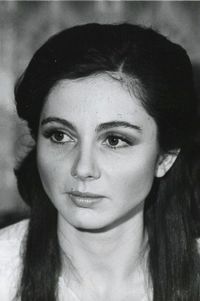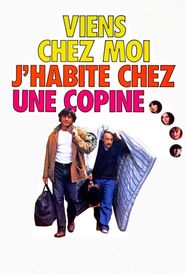Thérèse Liotard, a French actress of understated beauty, captivates audiences with her subtlety and sensitivity rather than relying on physical appearance. Despite her extensive filmography, unfortunately, a significant portion of her work consists of TV movies that are rarely reprogrammed, limiting the opportunity to appreciate her performances to the fullest.
Born on May 6, 1949, in Lille, France, Thérèse initially pursued a degree in literature at the age of twenty, but her true passion lay in acting. She enrolled in the Conservatory of Bordeaux and joined the Compagnie Dramatique d'Aquitaine in 1970, simultaneously working as a television announcer. After graduating, Thérèse relocated to Paris, where she took on various jobs, including working as an au pair, an employee for a bibliophile, and others, to finance her training at the Cours Simon.
Thérèse began her stage career with performances in "La Peur", an adaptation of Alfred Jarry's "La Peur chez l'Amour", and later in a play by Samuel Beckett. Roles followed, including "The Masked Dagger" in the theater (1974) and "Une ténébreuse affaire" after the novel by Balzac (1975).
Thérèse's entry into the world of cinema was facilitated by a series of fortunate encounters with renowned directors such as Agnès Varda, Bertrand Tavernier, Patrice Leconte, Luigi Comencini, Claude Sautet, and Yves Robert. She received her most notable roles, including Suzanne, one of the two heroines in "One Sings, the Other Doesn't" (1976); Tracey, reporter Harvey Keitel's ex-wife in "Death Watch" (1979); Françoise, Bernard Giraudeau's life companion in "Viens chez moi, j'habite chez une copine" (1980); the mother of "A Boy from Calabria" (1987); Régine, Dominique Lavanant's formerly leftist sister in "A Few Days with Me" (1988); Aunt Rose in "My Father's Glory" and "My Mother's Castle" (1989),a role she coveted more than that of the mother, which she found "funnier", and which earned her a nomination for the César for Best Supporting Actress.
In 1990, Thérèse played a recurring role in the British police series "Bergerac" and appeared as the mother of Judith Godrèche in "The Disenchanted" by Benoît Jacquot. She retired in 2013 after a memorable role as a mother in "Happiness" by Fabrice Grange and has since then given acting lessons. In 2018, she received the well-deserved "Reconnaissance des cinéphiles (Moviegoers' recognition)" prize, marking the culmination of her illustrious career.























